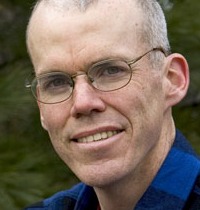Bill McKibben is an author, environmentalist, and activist. In 1988 he wrote The End of Nature, the first book for a common audience about global warming. He is a co-founder and Senior Advisor at 350.org, the first planet-wide, grassroots climate change movement, which has organized twenty thousand rallies around the world in every country save North Korea. Bill is also a Fellow of Post-Carbon Institute.
About the World in 2050 Conference:
The most pressing existential issue of the 21st century for humanity as a whole is the increasingly grim reality of climate change and our entry into a new era in the history of humans and the planet well signified by the Anthropocene. The changing conditions of life on Earth lie at the center of a series of interconnected crises which include, among others, the precarity of the global economy, a widening deficit of political legitimacy, and cultures scarred by violence, from the most intimate interpersonal interactions to the most global realities of war-making.
Unlike either the justifiably pessimistic critical discussions or the unrealistically optimistic policy approaches that increasingly confront (or ignore) each other around the climate crisis, this conference will depart from our present ground zero by adopting perspectives of the multiple possible states of the world in mid-century and work back toward the present in an attempt to imagine, envision, enable, and collaboratively find or create some of the pathways to a far better – or just less worse – outcome for humanity by 2050.
This conference, which is taking place from October 24 to November 14, 2016, is unusual because of the conference format: it is an international academic conference with over 50 speakers from eight countries, yet it has a nearly nonexistent carbon footprint. Had this been a traditional fly-in conference, our slate of speakers would have had to collectively travel over 300,000 miles, generating the equivalent of over 100,000 pounds of carbon dioxide (CO2) in the process. This is equal to the total annual carbon footprint of 50 people living in India, 165 in Kenya.
In contrast, we took a digital approach. Because the conference talks and Q&A sessions reside on the conference website (the talks are prerecorded; the Q&As interactive), travel was unnecessary.
By 2050, the aviation sector could consume as much as 27% of the global carbon budget (more). We need to immediately take steps to keep this from happening. This conference approach, which completely eschews flying, is one such effort.
Interested in staging a nearly carbon-neutral (NCN) conference like this one? For the rationale behind this approach & details on how to coordinate such events, see our White Paper / Practical Guide. For an archived example of this NCN approach, visit our May 2016 conference, Climate Change: Views from the Humanities.
This conference is part of a series of UCSB events on Climate Futures: This Changes Everything. The Environmental Humanities Initiative (EHI) at UCSB is hosting the conference on the EHI website. While here, please feel free to explore the EHI site, perhaps starting with our Intro and Home pages, or our two online magazines: Climate Futures and Environmental Humanities.






